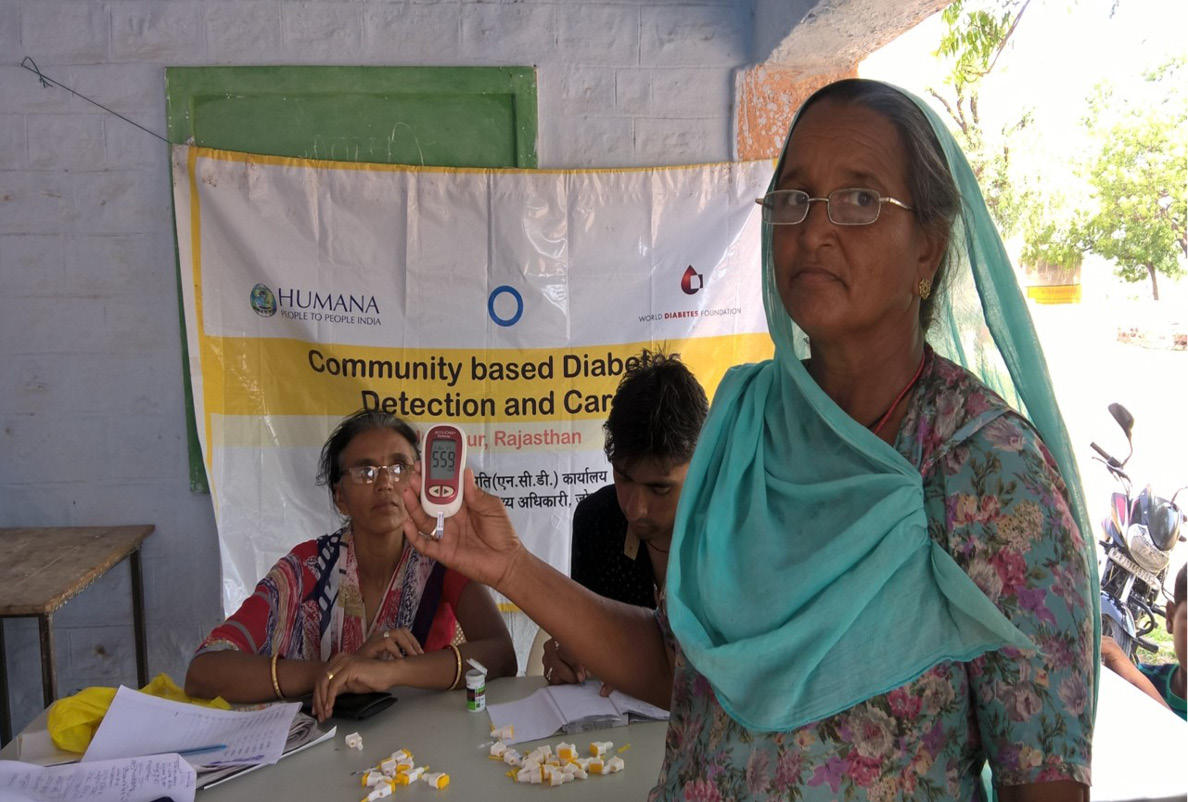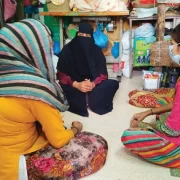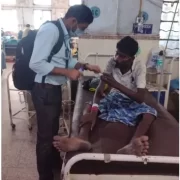Health
Our health projects operate through a community-based model as we work towards:
- Educating people on health-related issues and self-risk assessment
- Engaging community members in generating demand for a quality life and prompt health services
- Working in close cooperation with local health systems, including Women and Child care centers known as Anganwadi centers (AWCs) and frontline workers
- Improving nutrition amongst children, pregnant women, and lactating mothers
Community Health
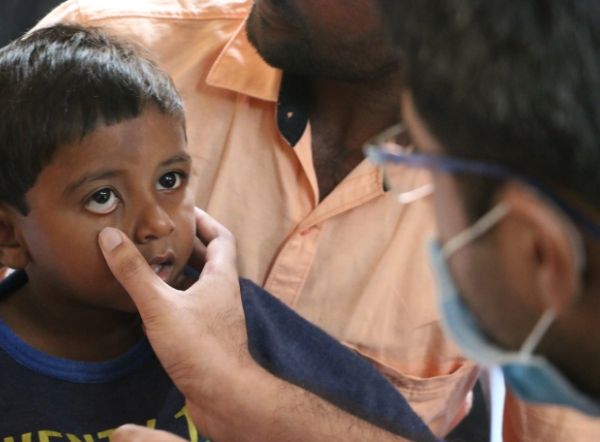
Our Community Development Projects (CDP) provide essential preventive and curative healthcare to thousands of underprivileged people. The key components are organising regular health clinics, periodic health camps, and mobilising the local women’s health clubs. Mass scale deworming of children, distribution of iron-folic acid supplements among pregnant and lactating women, promotion of Oral Rehydration Solution (ORS) and Zinc supplements in diarrhea, treatment of general illnesses, and health education on Mother and Child Health (MCH) care are the key features of our community health services. Improving nutrition amongst children, pregnant women, and lactating mothers is an integral part of our interventions.
Over the last three years, we have worked with more than 1500 Women and Child care centers towards strengthening their functioning and building the capacities of the frontline health workers (ASHA workers, ANM and AWW) in 10 low-performing districts in 7 states such as Rajasthan, Chhattisgarh, Jharkhand, Uttar Pradesh, Himachal Pradesh, Maharashtra, and Telangana.
In response to the COVID-19 emergency, all our projects adopted COVID awareness norms and compliant screening activities.
Tuberculosis (TB)
Tuberculosis (TB) is one of the leading causes of death and the second leading infectious disease after COVID-19 (above HIV/AIDS) worldwide. Multi-drug resistant TB and comorbid conditions of TB with HIV, Diabetes, and Covid19 increase the challenges of the country-level TB programmes by multiple folds.
We are active partners with the Government of India to raise and complement its country-wide ‘mass-awareness movement on TB’ (Jan Andolan). We work with the highly vulnerable homeless people in large metropolitan cities to protect them from the menace of TB. Our TB projects for homeless people in Delhi elicited that the estimated burden of TB ranges from 1400 to 1700 per 100,000 population. There is an urgent need to address TB-related issues in urban-based homeless people through a concerted and comprehensive approach.
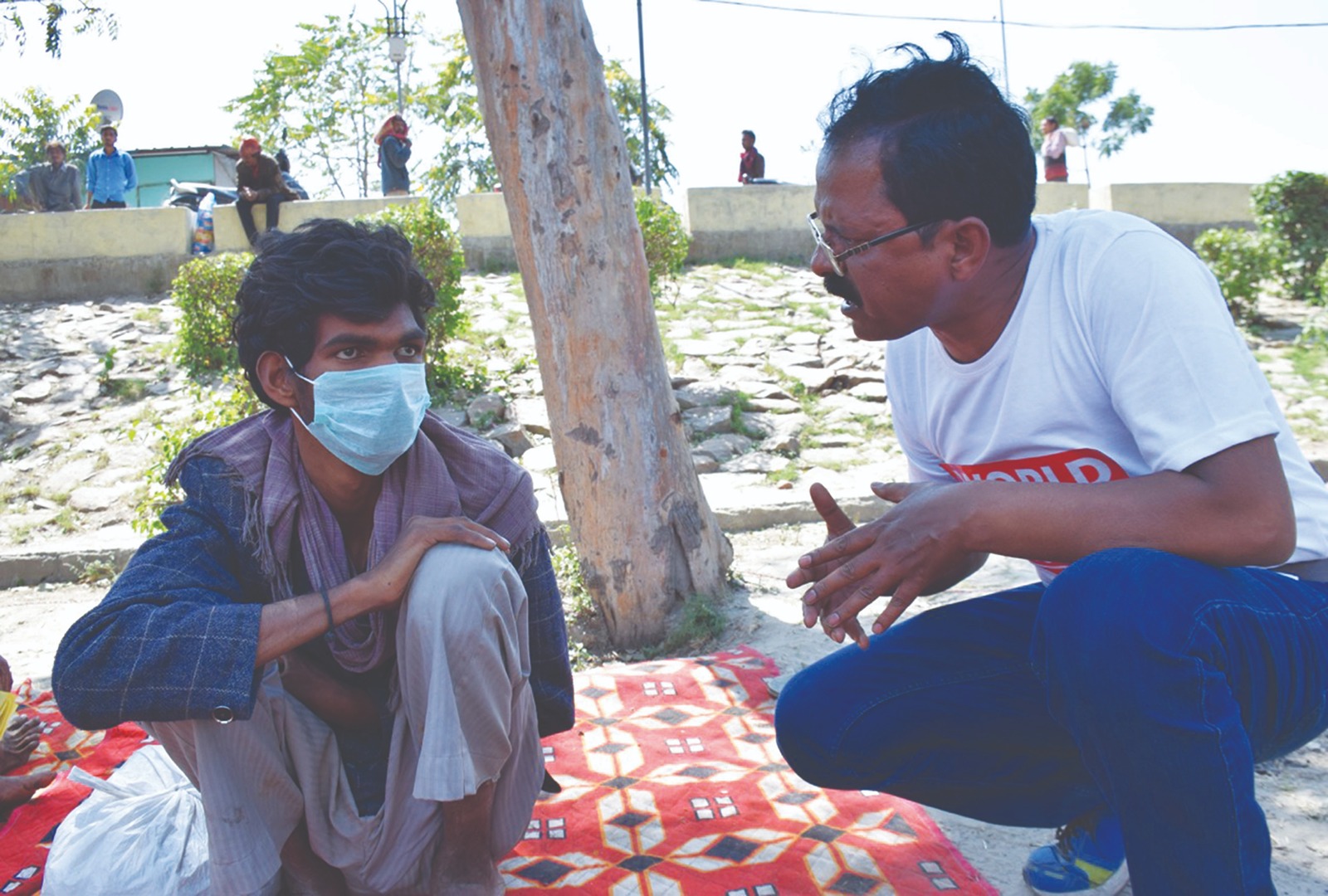
HIV and AIDS

Since 2007, we have supported vulnerable and high-risk populations to achieve control of HIV and AIDS. We are now campaigners for HIV elimination by 2035. All our current HIV projects aim to implement the ‘three zero’ strategy of UNAIDS, which includes zero new HIV infections, zero AIDS-related deaths, and zero discrimination. We currently run targeted intervention projects and link workers’ schemes in Delhi, Telangana, and Uttar Pradesh, in partnership with the State AIDS Control Societies (SACS). We also work with high-risk population groups such as female sex workers (FSWs), MSM, Transgenders, People Who Inject Drugs (PWID), migrants, people living in the slums and people living with HIV and AIDS.
HIV prevention initiatives aim to empower the HIV-negative members of high-risk groups to maintain their negative status. We implement the programme through a scientific community-based approach of community education, skill development, awareness of safe sex practices, promotion of NSEP (Needle Syringe Exchange Programme) and OST (Oral Substitution Therapy) in the PWID, timely STI diagnosis and treatment, and robust peer outreach.
Diabetes
India is among the world’s largest homes for diabetes. We have an estimated seventy million diabetic population in the country. In the recent past at HPPI, we have demonstrated the effectiveness of community-based and peer-driven approaches to detect and manage diabetes in the state of Rajasthan, in partnership with the World Diabetes Foundation between 2015 – 2017 (project number WDF 15 – 1247) and BMS Foundation between 2013 – 2015.
Both projects were evaluated with a meticulous end-line evaluation with critical learning on the burden and community responses to diabetes.
